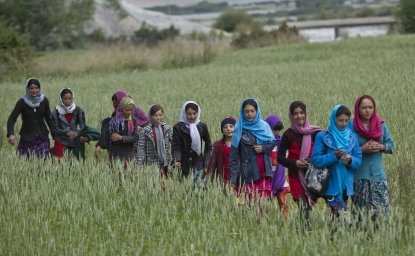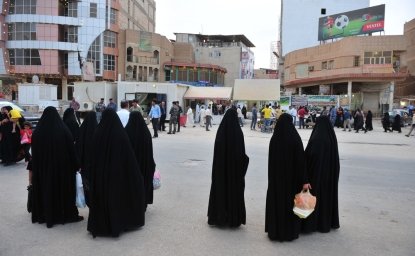The Latest
In partnership with the Wilson Center’s Asia Program and Vital Voices, Middle East Program Director Merissa Khurma had the opportunity to interview two Afghan women. Marwa Dashti and Hilai Barakzai were forced to flee Afghanistan after the Taliban takeover, yet are determined to fight for women’s right to work and access to education.
The Taliban takeover in Afghanistan is most probably the worst political outcome for women and girls in the country, and is already leading to a devastating humanitarian disaster. After two decades of activism and progress in rebuilding educational institutions, and strengthening civil society and women-led or owned enterprises, Afghan women stand to lose their most basic rights and freedoms under Taliban rule. But, while the Taliban see them as threats, they stand to be Afghanistan’s hope. In the past few months, as the Taliban were making gains across Afghanistan, a coalition of women’s groups that includes Vital Voices, the Georgetown University’s Institute for Women, Peace and Security; Women for Women International, and other trusted on-the-ground humanitarian organizations all over the world have been working round the clock to meet the critical needs of the most at-risk Afghan women leaders.

Middle East Program
The Wilson Center’s Middle East Program serves as a crucial resource for the policymaking community and beyond, providing analyses and research that helps inform US foreign policymaking, stimulates public debate, and expands knowledge about issues in the wider Middle East and North Africa (MENA) region. Read more


Middle East Women's Initiative
The Middle East Women's Initiative (MEWI) promotes the empowerment of women in the region through an open and inclusive dialogue with women leaders from the Middle East and continuous research. Read more


Indo-Pacific Program
The Indo-Pacific Program promotes policy debate and intellectual discussions on US interests in the Asia-Pacific as well as political, economic, security, and social issues relating to the world’s most populous and economically dynamic region. Read more

Explore More
Browse Insights & Analysis
Women are the Catalysts for Change in Lebanon



